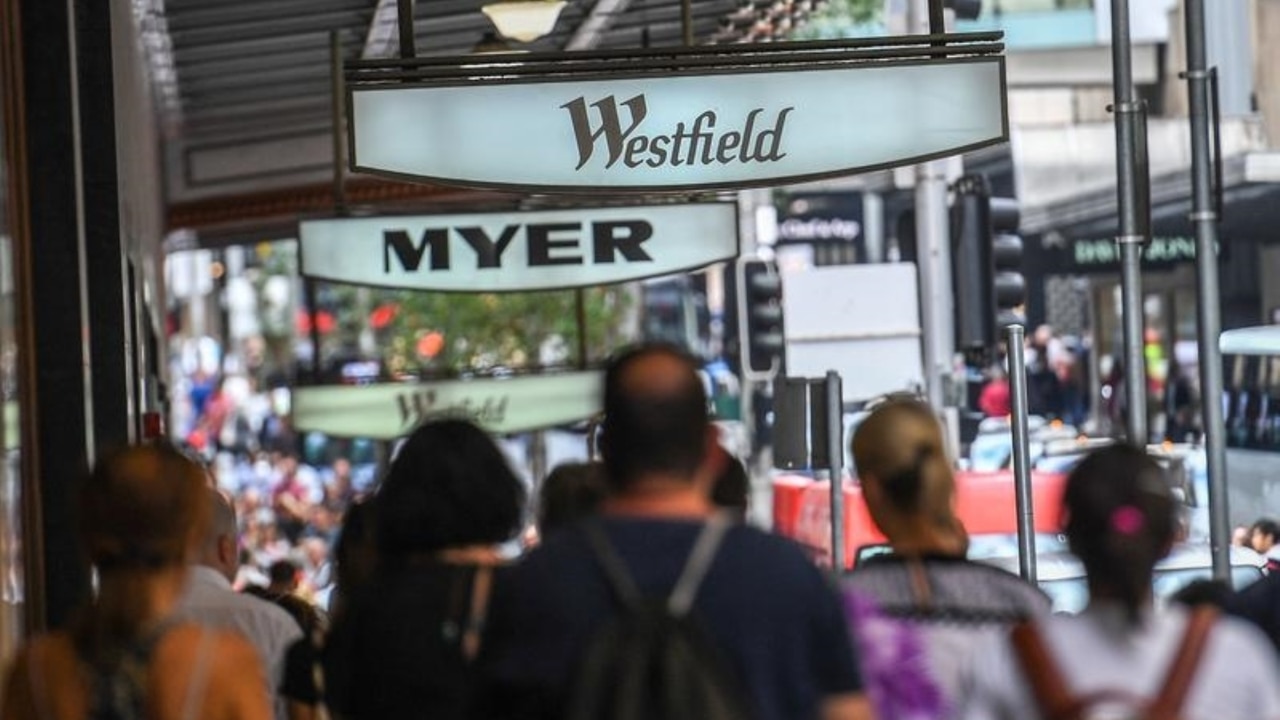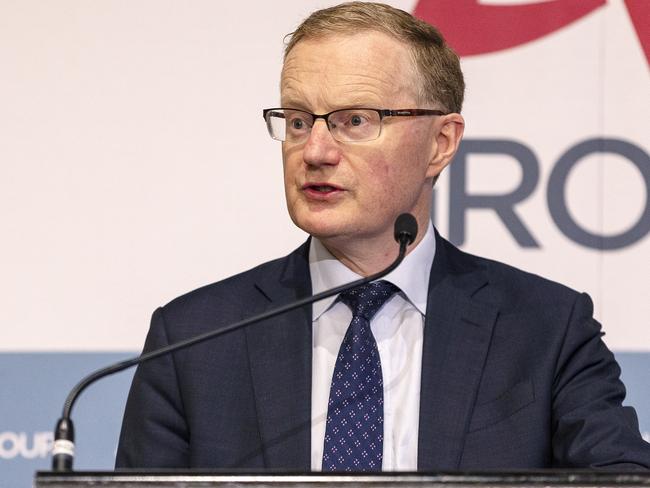Terry McCrann: If you don’t want essential charges rising, then you should welcome low inflation
THERE are three big reasons why low inflation figures are great news for Australians. Enjoy it while it lasts, writes Terry McCrann.

Terry McCrann
Don't miss out on the headlines from Terry McCrann. Followed categories will be added to My News.
LET’S start with three big reasons why the continued low inflation numbers are good to great news.
The first is, or should be, obvious: would you really want the prices of things you buy — especially of those things you have to buy like power, food and healthcare — to be going up by more?
Secondly and on the same tack, given that you can’t get much of a wage or salary rise, thank goodness at least for low inflation.
HOME LOANS: INTEREST RATES TO RISE WITHIN MONTHS, ANALYSTS SAY
INFLATION LIMPS INTO RESERVE BANK’S TARGET ZONE
With wages rising by 2-3 per cent, you sincerely do not want inflation to be going up by more than the 2 per cent or so recorded.
This is especially the case when politicians — in an entirely bipartisan way and at both the federal and state levels — want to stick it you good and proper with forced (and entirely unnecessary) rises in the prices of so many things you have to buy.
Did anyone mention electricity and gas?
The third big reason is interest rates. Hands up those who want an increase in their home loan repayments thanks to a Reserve Bank official interest rate increase?
Thanks to those inflation numbers, the RBA is not going to raise its official rate anytime soon (like, well, well, into 2019 — and even then, only “perhaps”).
Again, thank goodness, because the banks are likely to raise their rates anyway.
So, would you have wanted increases from both?

True, somewhat perversely, the confirmation from the low inflation numbers that the RBA won’t be hiking could trigger the big banks, which have been holding off, to press their hike buttons. But it’s more likely to be around 10 points rather than the 25 point official hike.
All this takes on even more potency for those borrowers — especially investors — who have been on interest-only loans and presumably don’t particularly want to suddenly get hit by having to pay interest plus principal plus a bank rate hike plus a RBA rate hike.
Further, I doubt that many of you would be fooled by the plea: what about bank depositors? At least, wouldn’t higher rates deliver them a better return?
For a variety of reasons I wouldn’t be betting on that or much more than a token lift. More importantly, any benefit to depositors would be swamped by the downside of a cocktail of higher rates, higher wages and higher inflation.
Some might WISH it were different; broadly, that the inflation stayed around the 2 per cent or kicked up only slightly to around 2.5 per cent, but that wages started growing by closer to 4 per cent, so wage earners got a “real” if modest wage rise.
And in that world, the RBA would — or might — deliver a rate hike.
I am not one of those people.
First off, there are good reasons for today’s modest wise rises and an attractive consequence of them.

The two big reasons are the various disruptions that are sweeping the world — broadly, both the rise of China and the digital destruction of “old” jobs; and, this is more complicated, a broad national need for Australia to take a bit of a hit on its national income.
In short, significantly higher wages growth could only happen by being forced. That never ends well.
And let’s not forget “bracket creep”. It might be small, but wages growing at 4 per cent as against 2 per cent sends more money to Canberra. Plus, as always, GST.
Remember the old complaint that one man’s wage rise was another man’s job? Well, the low wage rises has helped put people into jobs.
There’s a lot to be said for the stability we’ve experienced over the past two years: rates on hold, inflation low, some modest wages growth and more people getting jobs in, let’s not forget, very volatile and uncertain times.
Be careful what — some people — wish for. When and if the RBA has to change its official rate, it will both be telling us that “something” has (or many “somethings” have) changed and those “somethings” might not be very attractive.
Plus, once the RBA does move, we would face fresh uncertainty. Simply, what happens next?
Would it be the first of many rate changes? Notice, I carefully avoided saying “hikes” (or indeed, cuts).
What impact would there be on share prices? On property values? On jobs, on wages, on the Budget, on the Aussie dollar, on taxes etc etc?
THE GOOD NEWS IN THE DETAIL
IT is important to understand how we’ve been getting to the — broadly — 0.5 per cent a quarter/ 2 per cent annual inflation.
Simply, the prices of a whole bunch of things — goods and services — have been unchanged or even falling; while the prices of a whole bunch of other things have been rising by more than the 0.5/2 per cent; in some cases by much more.
The first group is what’s called “tradables” where prices are essentially set in the world of global competition. That’s things like clothing, audio and computer equipment, travel and so on.
The second — higher — inflation group is the “non-tradables”.
Those things where the prices are set by local wage costs and by governments, like healthcare and other public services and of course, power.
Over the past six months tradables inflation was running at zero on an annualised basis; the very good news was that non-tradables inflation fell sharply to an annualised rate of just 2.4 per cent.
So not only are the overall inflation numbers good, we are no longer having governments (really) screwing us with higher and higher charges.
At least, for the moment. Enjoy it while it lasts.



